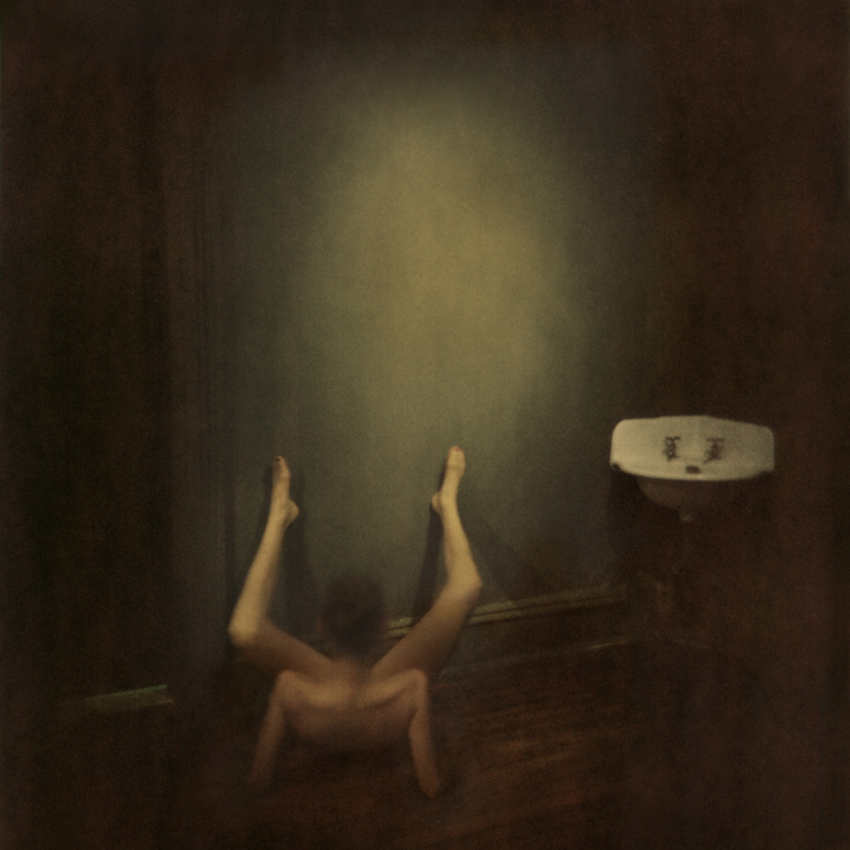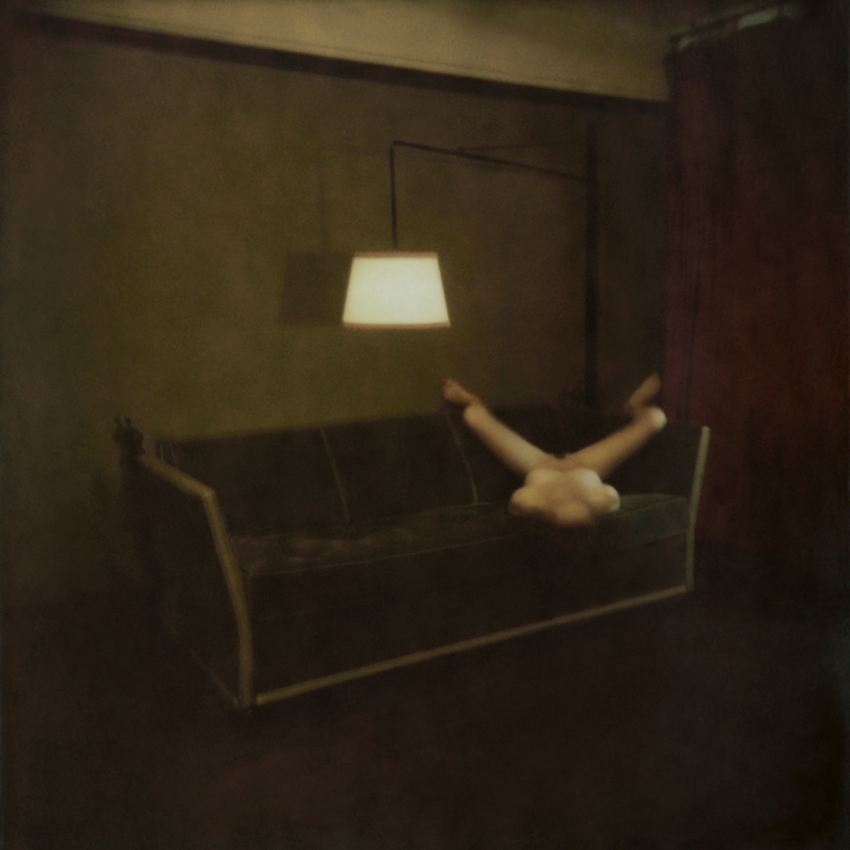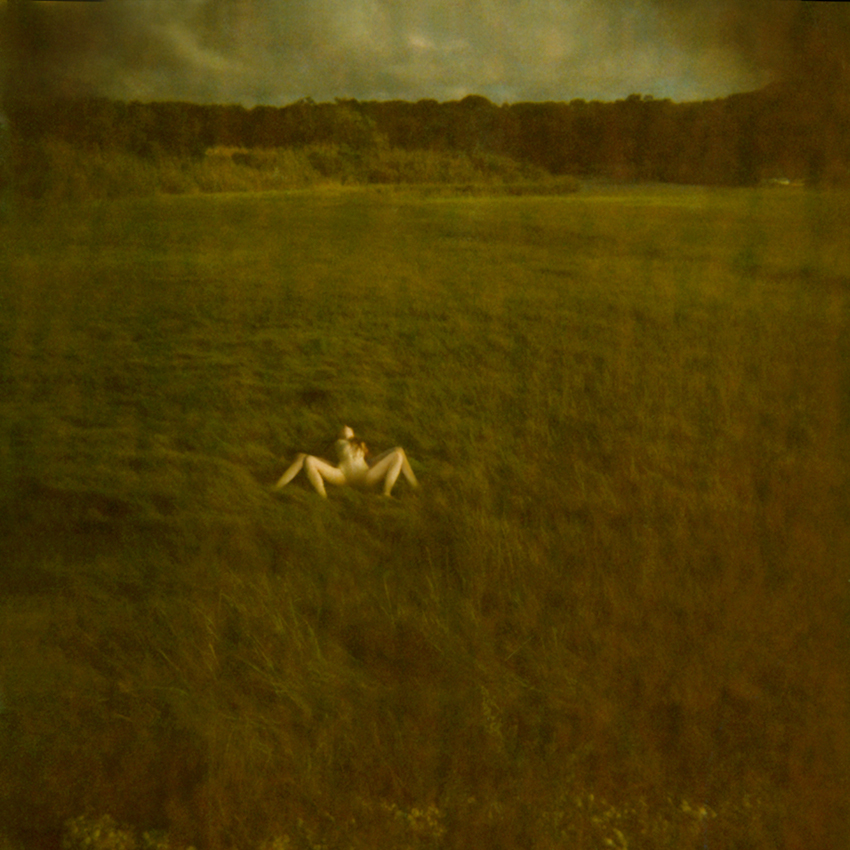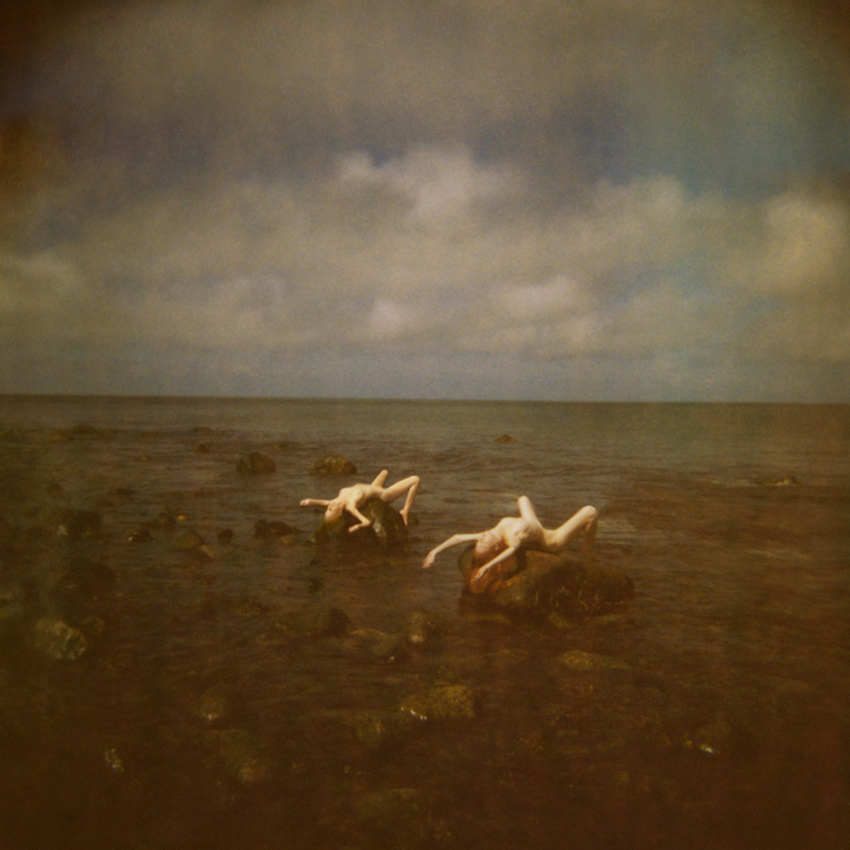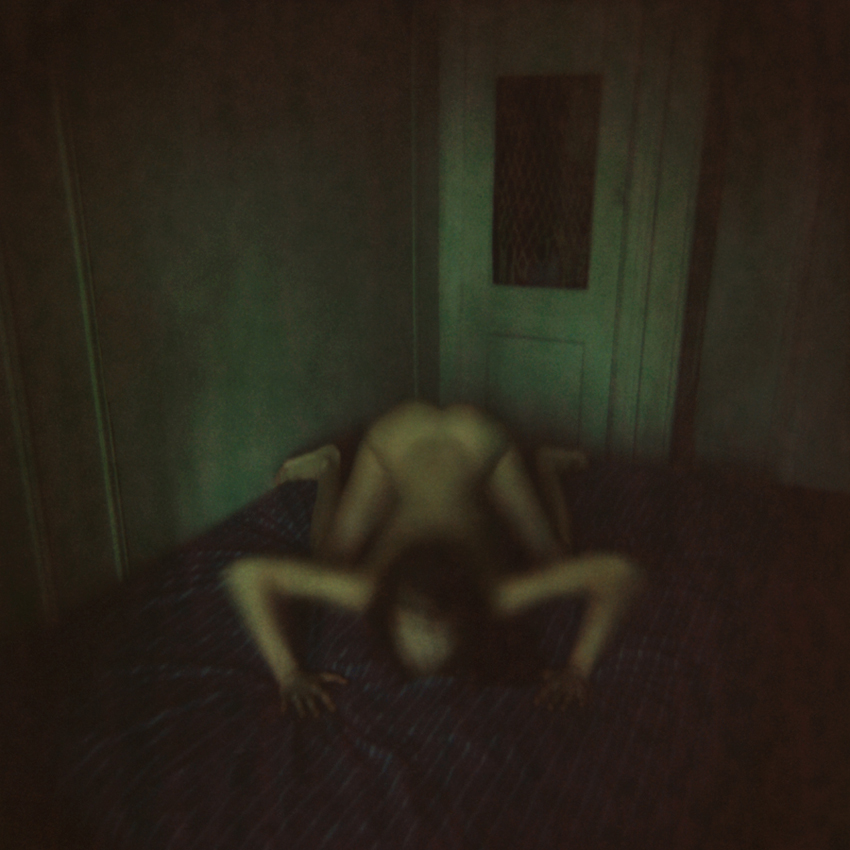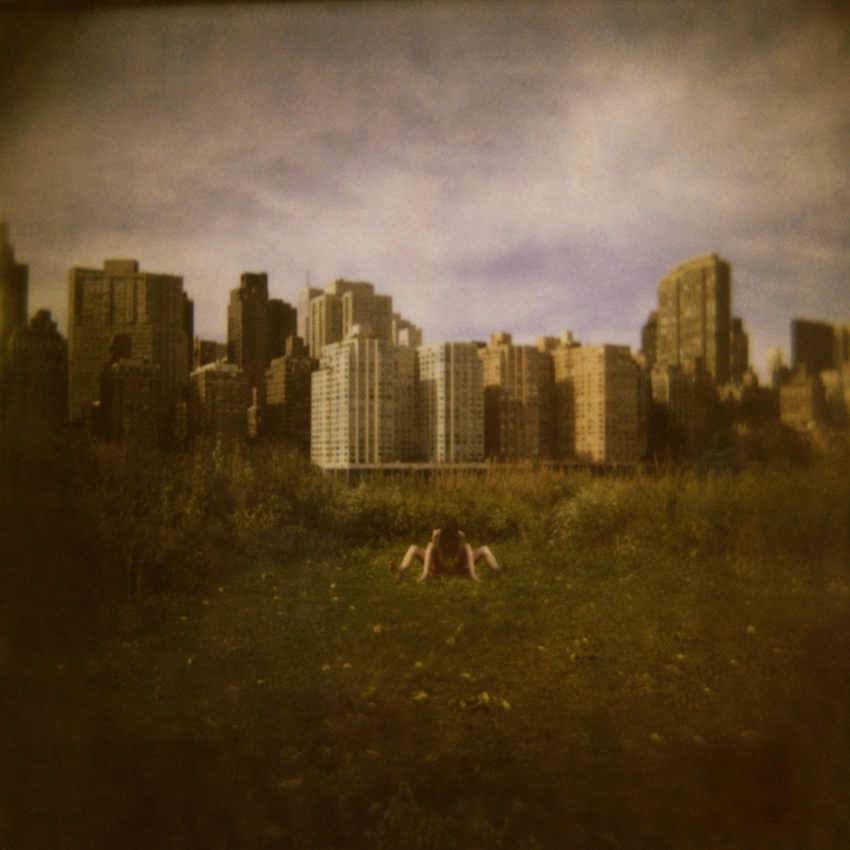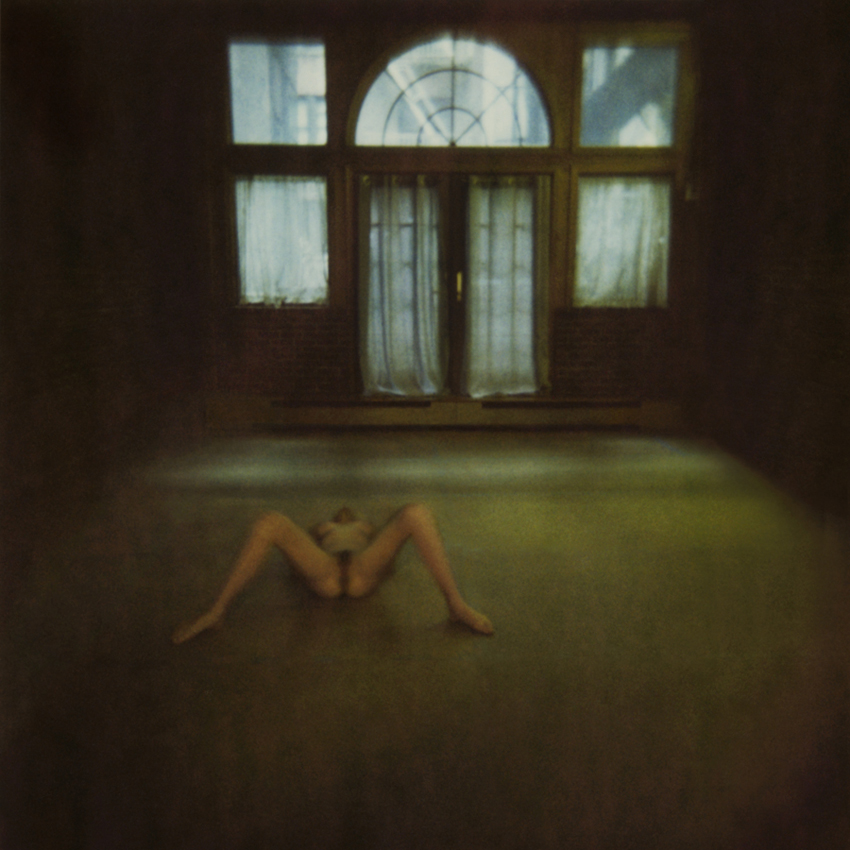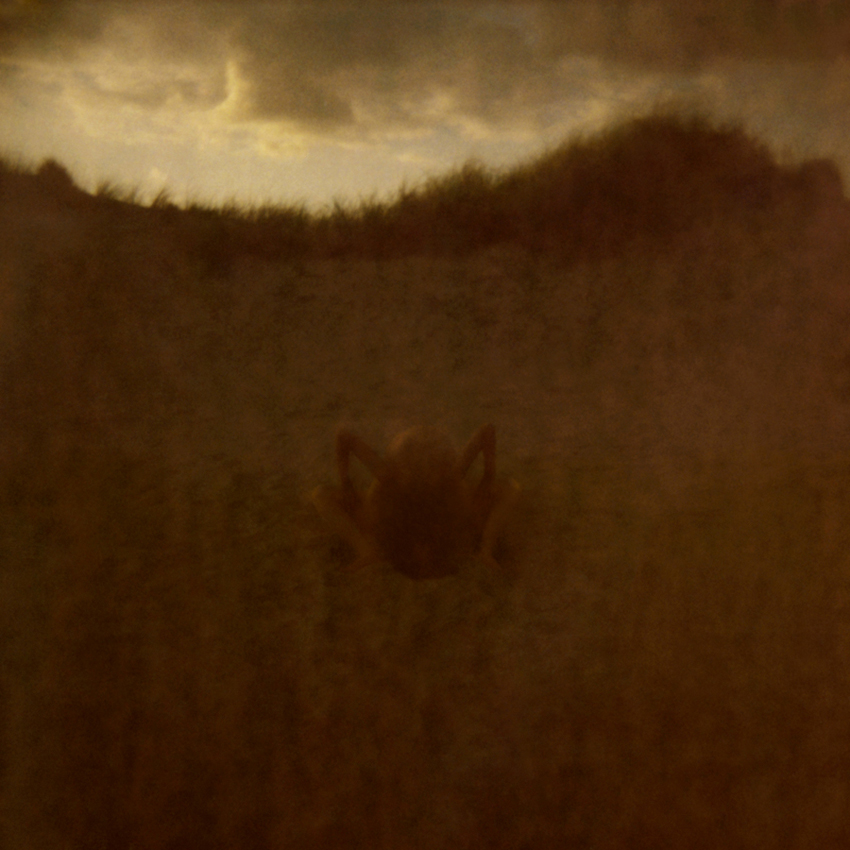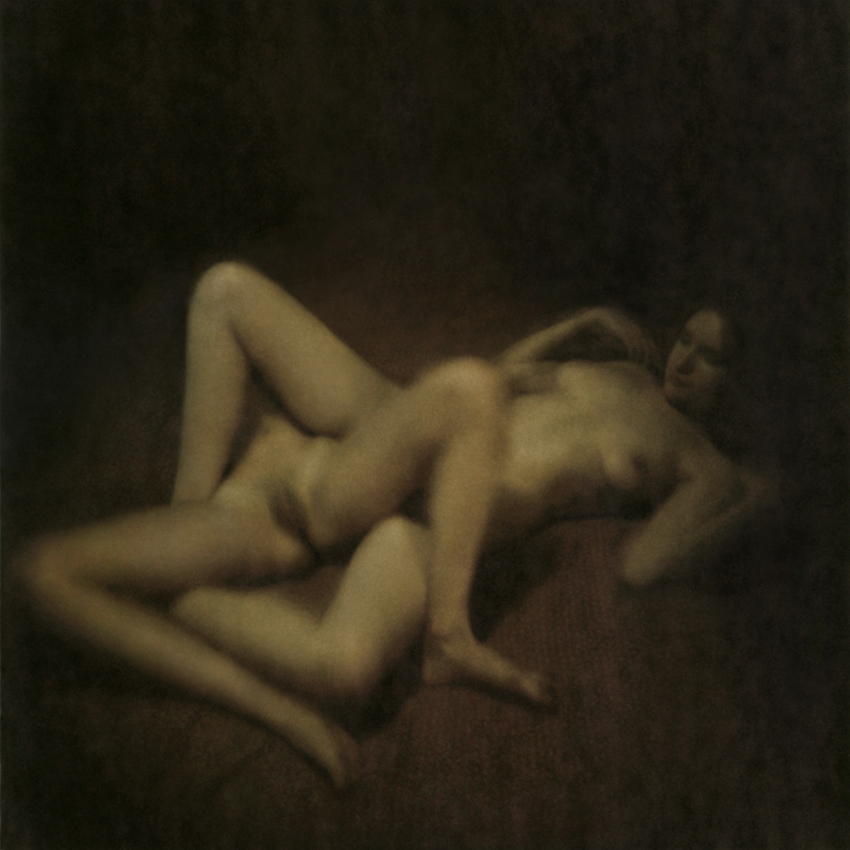1
Mr. and Mrs. R. were farmers. They lived quietly, farming the land, raising poultry, cattle, and pigs—all little by little according to their own needs. Their small, healthy baby was already running in the yard when a second arrived in their world.
The midwife cried out in horror. The newborn in her hands didn’t look human. The villagers were to talk about it for years to come though nobody outside the family (except the midwife) ever saw the baby. Even the mother (hereafter we shall refer to her as “the biological mother”) did not examine him carefully. (We know nothing of the father’s reaction.) Right away an ambulance drove into the yard, and the doctor carried the boy away to Krakow.
But trouble has not left this mountain village; on the contrary, things have grown worse. People have whispered across their fences, “He had a huge, wrinkled head. Bulging eyes without lids. Frog fingers. And scales over his entire body like a fish.”
They knew that such ugliness could not come from God.
They grew alarmed when their cows stopped giving milk.
2
It’s been six years already since the boy was born. The doctors are still unable to say why he’s so ugly, but the consensus is that he is both blind and mute. That he will never be able to sit up or walk. One day he is sure to fall asleep and never wake up again.
They sent the boy to a children’s home. All the workers there came running to look: the janitor came from the furnace and supposedly fainted, the head governess felt a sharp pain in her chest, and the others had nightmares for a week. The women at the orphanage feared the boy, especially when they had to touch him. They drew lots to determine who would feed and bathe him.
The boy looked like he didn’t have ears at all: they were little and hairy. And he had a huge mouth, and what he couldn’t manage to swallow would spill out of it. Because he lacked eyelids, his eyes threatened to dry out—it was necessary to put drops in them every two hours. Though he didn’t have either frog fingers or fish scales, he still looked like a monster. That’s how they talked about him at the orphanage: monster or just freak. “I was scared that he would bite my throat in two,” relates the governess in charge of infants. Bathing another child, she says, “This child here isn’t missing out on anything; he’s pink and sweet smelling, but his mother still rejected him. Women have reasons for dropping their kids here: that girl’s mom ate a hole in the door, that boy’s mom is still in school, and the mother of that one lying under the window—she wanted to go out and see the world. The ugly boy probably thinks these kids have it just fine. Nobody’s scared of them. Someday they’ll find a new family and be loved.”
But the boy was still too small to understand what was happening to him. He didn’t ever sit up, didn’t speak, didn’t react to anything. He was closed, distrustful, quiet, as if he didn’t want to inconvenience anyone. He lay peacefully like that when his biological mother came to visit. (It appears the father never came.) The woman stood weeping over the cot for a long time. Although the orphanage workers didn’t like the parents who had cast off their own children, they were forgiving of this woman: “It’s good that she put him here,” they said. “Here you have the city and its doctors.”
The biological mother came several more times to the children’s home. During her last visit (when she went through the remaining paperwork), she already didn’t want to see her son. She stopped coming before the little guy began to comprehend what was going on.
Everyone at the orphanage was convinced that the ugly boy would never find a new family. When he gets a little bigger, he’ll go to the asylum. And that’s what began worrying the workers at the children’s home. Because they had started to love the boy. They called him Matthew.
3
Doctors often wanted to check out Matthew when he went to the hospital. They observed him thoughtfully: they measured him, they weighed him, and they stared into his eyes. It appeared as though he saw with difficulty because he had a nystagmus. They made lots of notes and took photographs. Although they could already diagnose his illness—Ablepharon macrostomia syndrome, or AMS, a condition characterized by a lack of eyelids and a huge mouth—they were unable to say anything more.
There is almost no professional literature on the subject.
We know that medicine has recorded only fifty such cases throughout its entire history. Surely more such children have been born, but none of them made it to a doctor. Specific descriptions of the disease exist: first from 1883, then from 1920, 1922, 1950, 1962, 1977, and 1985, among others. The disease takes its name from the surname of one of the authors from the McCarthy Group. These children lack eyelids, have large mouths and vestigial earlobes. Moreover, medical students have also documented these common characteristics among them: lack of hair, or thin and straggly hair; both eyes are congenitally crossed, no eyebrows; irregular frontal nostrils; small, underdeveloped teeth; cleft palates; expressionless face; rough, dry skin which appears bunched up, especially in the areas of the nape of the neck, buttocks, and feet; flat body or a diminished body near the navel; at times lacking a navel altogether; lacking nipples or having vestigial nipples; indefinite genitals with a small penis located in the posterior of the crotch, lacking a scrotum; indefinite and incomprehensible nasal speech; and mentally handicapped. Everything a result of genetic damage. But what kind of damage and why this boy—regrettably, medicine does not yet know.
All documented children had been rejected by their biological parents; none had found new families. But medical students registering these cases generally do not tell what became of these orphans: did they reach maturity? how long did they live?
Medicine knows nothing more.
4
In a small house not too far away from the orphanage live identical twins Renata and Dorota. They were settled into a life that, although it didn’t contain husbands, was full of children: Renata has Evelyn, and Dorota has Tommy and Claudia. Although the twins are just past thirty-four, the youngest of their children has just finished elementary school. In a year Evelyn will come of age. She is tall and pretty; she studies at the lyceum and is training in track and field. In two years she wants to take the entrance exam to the Physical Education Academy.
The twin Dorota is a sister of the Polish Red Cross, and every morning she takes care of the elderly who are alone. She says, “I work with those who are leaving the world, and Renata with those who are coming into the world.”
Renata is a nurse at the orphanage. More than once she brought children from there on a Sunday: there was little Chris with the giant head (who in the end, together with his twin brother, found a new family in Sweden); there was Jackie with the nystagmus, who got scared when something moved by him too fast (his grandmother took pity on him and took him in herself); there was Dominic—the next boy with a head like a balloon (he died in the hospital while Renata held his hand); and there was Matthew—the really ugly boy whom at first she feared like all the other women at the orphanage. “But Matthew grew,” they say today. “He began to move, to turn over on his stomach. Once I saw indentions on his motionless cheeks. He was smiling.”
Doctors didn’t know how to treat Matthew further. But so that he could eat normally, they stitched together a mouth for him from flaps of skin from his left and right cheeks. They sewed him upper and lower eyelids so he wouldn’t have to sleep wearing swimming goggles filled with gauze soaked in a physiological saline solution.
Then a young rehabilitation therapist came to the orphanage—Thomas Koloch. It was his first job: “In school I saw children burned from their feet to their head, and that was a terrible sight. So, when I saw Matthew, I was surprised, but not disgusted. It was a great deal more difficult to accept a different child who couldn’t hold his stool.”
The rehabilitation therapist decided to straighten Matthew’s contractural fingers: after several hours that turned into several days, Matthew was able to open and close his palms. The therapist then decided that Matthew should crawl. Then that he should sit. Then that he should stand and walk. Finally, that he should stop shuffling his feet and begin to raise his feet and walk like other people.
Achievements came with difficulty, but each was rewarded with joy from all the workers at the orphanage. And Matthew was surely glad because Renata was nearby the entire time: she stayed after hours (while she readied herself, the child listened, tapping out the rhythm of the music from the radio) or carried him off to her home. There for the first time everyone could understand his mumbled words. Yes, perhaps sometimes they were inconvenienced, but they always had time for him; they would patiently ask the boy how things were going.
When Renata wasn’t able to take him out, her daughter Evelyn would look in on him at the orphanage. She gladly played with Matthew: “It’s not important how he is on the outside because inside there’s something very good that I don’t know how to describe. There are paralyzed children or children with Down syndrome who don’t have it. I don’t know if I could get attached to them.”
Sometimes Dorota would come around to the orphanage as well. She’d take Matthew for walks. They’d go far into the grassy field, farther and farther from the home for orphans, the place the boy didn’t like. He already knew that there were other homes in the world even if it wasn’t the home where “Renacha and Dorocha” lived. That’s how he referred to the twins.
It was at their place that he saw a whole loaf of bread for the first time.
He decorated a Christmas tree for the first time (in the orphanage the staff was in charge of decorating the tree), and he was able to pick off his own candy canes; one, two, ten (in the orphanage the Christmas tree was so tall that no child could reach the candy).
Here he could go out in front of the house in the evening with Renata and between the trees see the moon for the first time. He was amazed.
And he was amazed with the cars at night. “They have eyes,” he said merrily.
At Renata’s house he stopped wearing diapers.
But these visits couldn’t last long. Renata wasn’t a relative, so he was with her illegally.
5
Last summer Matthew left with Renata on a completely authorized vacation. They spent nearly two months together in Żmiąca, a village in the Tatra Mountains near Limanowa. There atop a high mountain stands a large house where a swarm of small children from several Krakow orphanages spend the summer. When some kid got injured, Renata would tend to the wounds since she was still on the clock.
Evelyn also went to Żmiąca, and when her mom was busy in the office, she would entertain Matthew. But on the days she went to Krakow, she was too tired. After a week she would return again from the city.
“Mama came to her decision behind the office doors.”
Dorota also came for a visit to that high mountaintop on Matthew’s fifth birthday. She brought cake and candles. She observed her sister carefully, how she thoughtfully took care of the boy. She answered Renata’s question that had remained entirely unspoken (illustrating the fact that twins can understand one another without words): “He must be ours.”
At that moment Renata was thankful. She thought, “My sister will support me. Because when I take Matthew for good, the orphanage can no longer help out.”
Renata asked her sister, “What do you think?”
Evelyn had her doubts. “Do you know what risks you’re taking on? He won’t always be so small and so sweet. And what happens when you die?”
To this Renata replied, “I think about it as well. But would you have the conscience to leave him this way? He’ll wind up in the poorhouse.”
On such a set matter Evelyn could only say, “As you wish.”
Matthew didn’t return to the orphanage. In the offices everything was settled in a flash: Renata would be his foster family.
The twins have an older sister (by profession she cares for the elderly). She says, “I wouldn’t take him. I’d be afraid that I couldn’t manage and would have to give him back. So I discouraged them.”
Renata admits, “The thought never occurred to me.”
People who knew Renata asked, “What is she doing this for?”
She replied, “I don’t know.”
People commented on the side, “Maybe she wants to pay God back for her beautiful daughter.”
Or, “Maybe she’s crazy.”
Or more intelligently, “Emotionally immature.”
Or altogether stupidly, “She already doesn’t have money for bread, and she’s taken such a monster under her roof?”
Renata admits, “The government pays me a thousand złoty a month. Half goes toward medicine and ointments.”
Someone asked her, “You get so tired, and do you know how long he’ll live?”
To that Renata furiously demanded, “Do you know how long you’ll live?”
She doesn’t want to say another word about her own fears. She talks about what she’s afraid of to her sister. “She sees that Matthew understands more and more. Maybe someday he’ll rebel against his being different. Maybe he’ll stop talking for good and shut himself up like a clam.”
Something else people say, “He’ll blame her for his ugliness. She’ll be crying yet.”
And Dorota has her own fears. “What’s going to happen?”
Acquaintances who work in healthcare, sympathetic to Renata, wonder, “Maybe he won’t be able to live with such a face. Children are often disfigured by burns. They grow up and commit suicide.”
Dr. Tadeusz Łyczakowski (he operated on Matthew) confesses, “Everything can be disguised, every defect can be hidden, even a hump. But not faces. The face is a person’s calling card. A person talks with another person face to face.”
Renata wants Matthew to be just a bit more attractive. And Dr. Łyczakowski tries to make that happen. His American colleagues who have already seen Matthew are arriving soon at the Institute in Prokocim. Together they’ll make new ears for the boy, and from his hair they’ll create eyebrows. And they’ll tidy up the eyelids because they’re ugly. But the doctor warns Renata, “This is how God made him. You can help him a little, improve him a little. But don’t expect a miracle.”
6
After a year Evelyn tells it like this: “Mom was always just for me. I never shared her with another child or another man. Then I grew up, and I had less and less time for her because of my studies, girlfriends, and training. And she didn’t have any time for herself: always bustling about, restless, zero time to relax. That all changed. Matthew has given her strength, calm. Mom has time to go to Krakow and visit Wawel Castle with him. Today nobody except Matthew exists for her. I have to accept that. In the end, there’s no explanation for what goes on between people. I know that her love for him is enormous. And reciprocated. And I still love Matthew, though I don’t treat him like a brother. The word brother has significance, its own kind of weight. But I’m glad when I see how he’s growing, he laughs, he speaks better and better, he counts, he can say what he likes and doesn’t. So I can’t blame Mom when her decision bears such fruit. I’m even proud of her. Maybe I have some regret because I’m by myself. I detached myself completely. It’s hard for me to live in this fairy tale that is happening in our home nowadays. Everyone there looks at the world through rose-colored glasses, or no further than tomorrow.”
7
Renata wants to make up to Matthew for the years spent at the orphanage (as does her sister Dorota, and Dorota’s children, who devote countless hours to him). They draw various strange shapes with him and build tall staircases with blocks. But Matthew doesn’t see eye to eye with every felt marker or with every block: “Only yellow,” he shouts in his own way.
For days on end Evelyn isn’t at home (because of school, training, etc.), so she rarely plays with Matthew. “I don’t have to constantly prove that I love him.”
Renata sleeps with Matthew, never yells at him and lets him get away with everything. At the supermarket when he ordered her to buy him an entire basket of underwear, she did. When he wanted a cap from a good company (with a well-recognized logo), she bought it, even though they don’t live in luxury. When they were in the village of Żmiąca (they were there that summer on vacation for the second time), he wanted to go play on the swing at midnight; she went out to push. And she said to him, “My most beautiful little boy.”
She admits that to her own daughter she would’ve said, “Go to sleep.”
When Matthew saw a fire burning in the fireplace in Żmiąca, he burned everything made of paper. And when he ran out of paper, Renata filled up all the glasses with juice and gave the empty carton to the boy. After, she dumped out cookies on the table and gave him the package made of corrugated cardboard. “No!” he cried out. And he went on loudly as Renata realized in no time, “They’re stairs; you don’t burn stairs.”
And then Renata found a misplaced newspaper under the armchair. Matthew tore page after page. He tossed each into the fire and watched it burn. He laughed out loud until he saw an ad for wood paint. In the photo: a staircase. He tucked it in his pocket.
With a smile Renata quizzes, “Tell me, sonny boy, what are you going to do when you’re grown?”
“I’ll build staircases,” he said, and Renata translated.
“Yes, you’ll be an engineer.”
There was one thing she had to refuse him. When they once walked into a church together, Matthew glanced up at the large crucifix. “Pull it down!” he shouted in his own way. “We’ll take him home!”
He cried because Renata said, “I can’t.”
Renata explains all over that her boy isn’t handicapped like other such children described by medicine. He’s slow like any child after the orphanage, but already he’s catching up. “He’s handicapped,” says Dr. Łyczakowski, who’s going to make the boy’s face prettier. “Though Matthew is making progress. When I met him, nothing but futzing with two plastic bowls. Back and forth.”
Renata convinces everyone that Matthew is getting better looking. “Bullshit,” responds Ela, a colleague from the orphanage. Renata wants everyone to understand his words because after all he speaks better and better, in complete sentences, and practices with a speech therapist. “I don’t understand Matthew,” Ela says so as to bring Renata back to reality. Renata respects Ela (a woman of about fifty) because all the kids at the orphanage adore her.
But Ela thinks, “Matthew will never be normal. And she has to be prepared for it, to shake free from this euphoria. She’s normal, but quirky. The love that she’s carried in herself she could have distributed to not only Evelyn but also to some man. After all, she was a young woman. I doubt whether at some time anyone will still make an appearance in her life. So far, no. She made such a decision and you have to respect her for it. Well, but let’s not exaggerate! It must be tougher for Matthew. Without a firm hand there’s no way. I know, I raised two on my own. But she just leaps to her feet: ‘son, sonny boy.’ When he cut his lip on vacation, you had to rescue her, not him.”
Other colleagues say, “Without him Renata wouldn’t last another day. Dorota too.”
Their older sister lets slip, “They’re possessive of him. It seems to each of them that she takes better care of the child than the other. They’re jealous.”
8
Dorota only ever takes care of the elderly before noon. Renata goes to the orphanage either until two or for the night. After work she always rushes home in order to quickly hug her son and take him to kindergarten.
The kindergarten close to home, though integrated (for healthy and disabled children), didn’t accept Matthew. “The parents are against it,” explained the director, “although those parents never saw Matthew.”
Now Matthew goes to kindergarten at a convent on the other side of town. Every day Renata takes him there by tram. She doesn’t like trams because the passengers stare terribly. According to her, the cruelest tend to be old people. They point at him.
When Renata talks about this, she cries.
And she smiles. “They say children are cruel because they’re candid. Some are, but in his kindergarten they often quarrel about who’s going to hold his hand. And with teenagers it’s normal. Evelyn’s—and Claudia and Tommy’s—friends visit us at home and they don’t have any problem with Matthew. They’re super.”
9
That summer Renata went to Warsaw to appear on the program Usual/Unusual. It’s a program about courageous and selfless people. In the TV studio Renata was greeted with applause. They showed a video of their home and Matthew: he danced in Evelyn’s arms. (“I squeezed out a fairy tale for them,” says Evelyn. “What was I supposed to do?”) The camera filmed Matthew from the back or from a distance. So that his ugly face couldn’t be clearly seen.
Then there was a discussion. As usual Renata said, “My Matthew’s the most beautiful.”
The interviewer didn’t hide his tears.
The next day, or maybe three days later, the governesses went out walking with a column of children past the orphanage fence. People, both young as well as quite old, approached them. “They said on TV that this monster was with you.”
To this the governesses replied, “Well, he was. Didn’t you see him before?”
Someone who had anxiety in his voice said, “That nurse lives around here.”
The governesses confirmed, “On the next street over.”
The people (now the entire group) agreed. “Well, exactly. Close.”
Someone said, “So now he’s under control.”
“But what’s going to happen when he grows up?” they asked.
Someone summed up, “You should put up a wall around the house. And hide the grandkids.”
10
Matthew says (whoever is with him for a few days will already understand him) that he has two mommies: “Renacha and Dorocha.” He knows that a completely different woman gave birth to him. They say that the biological mother cried when she heard about Renata.


